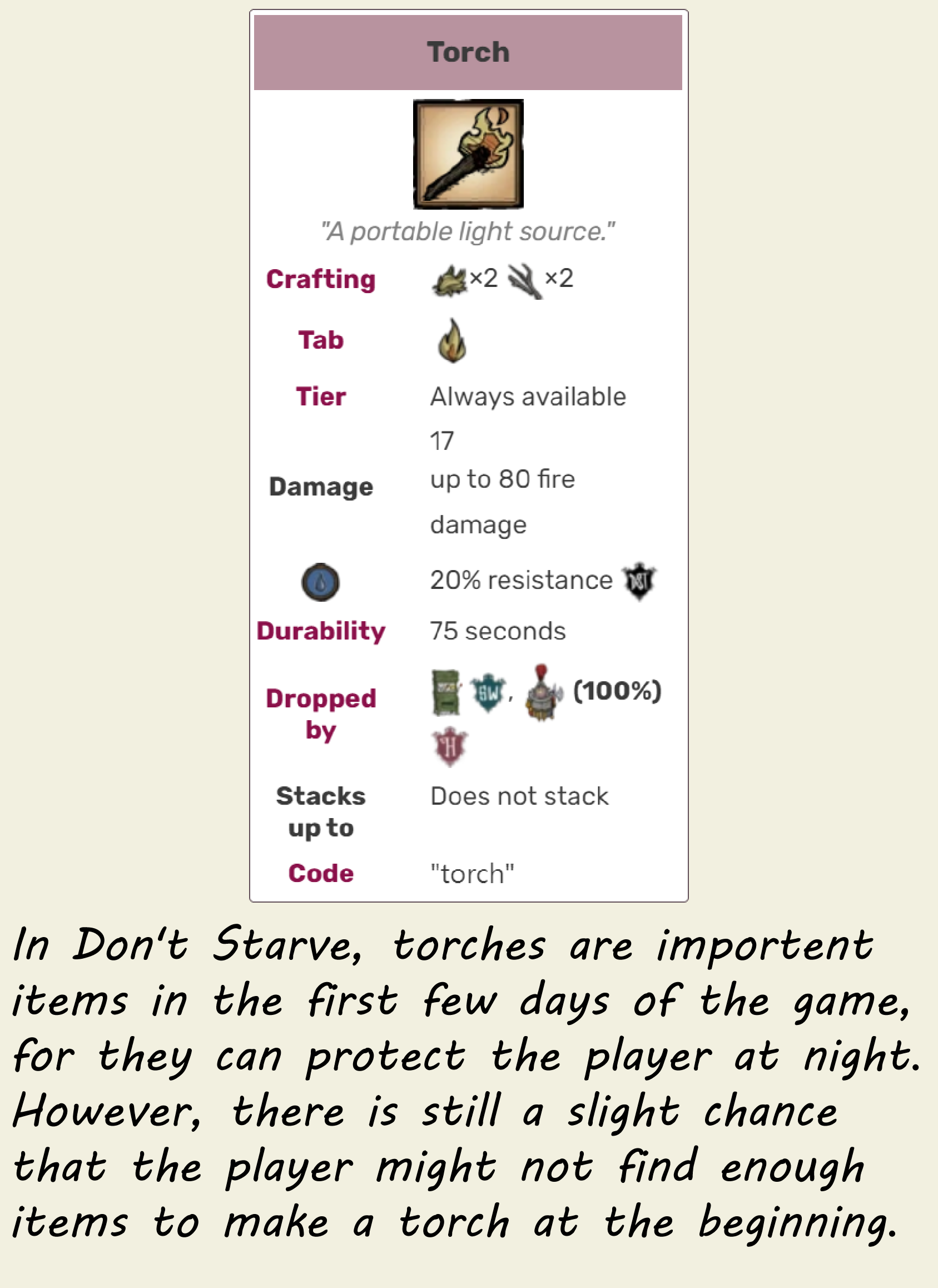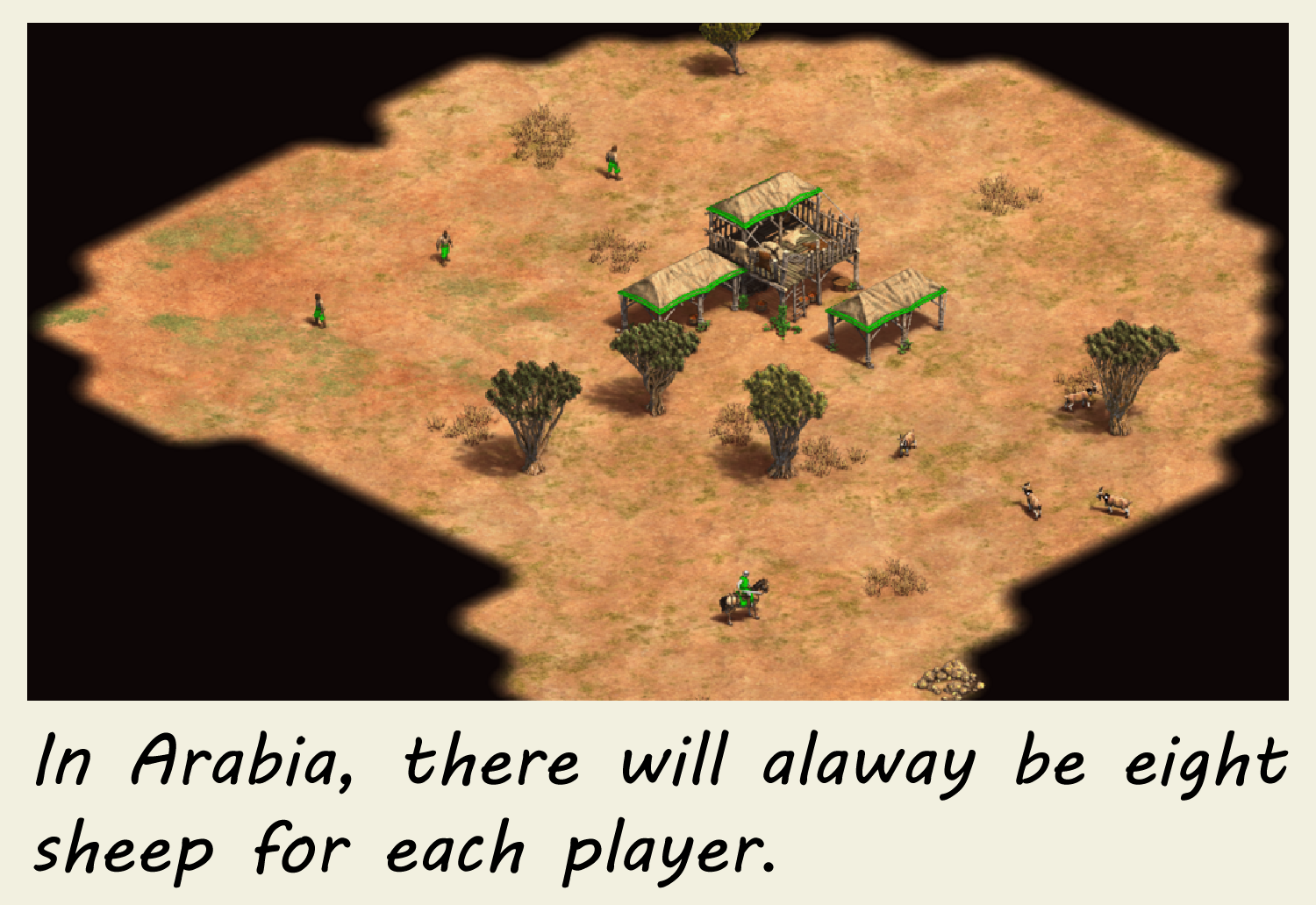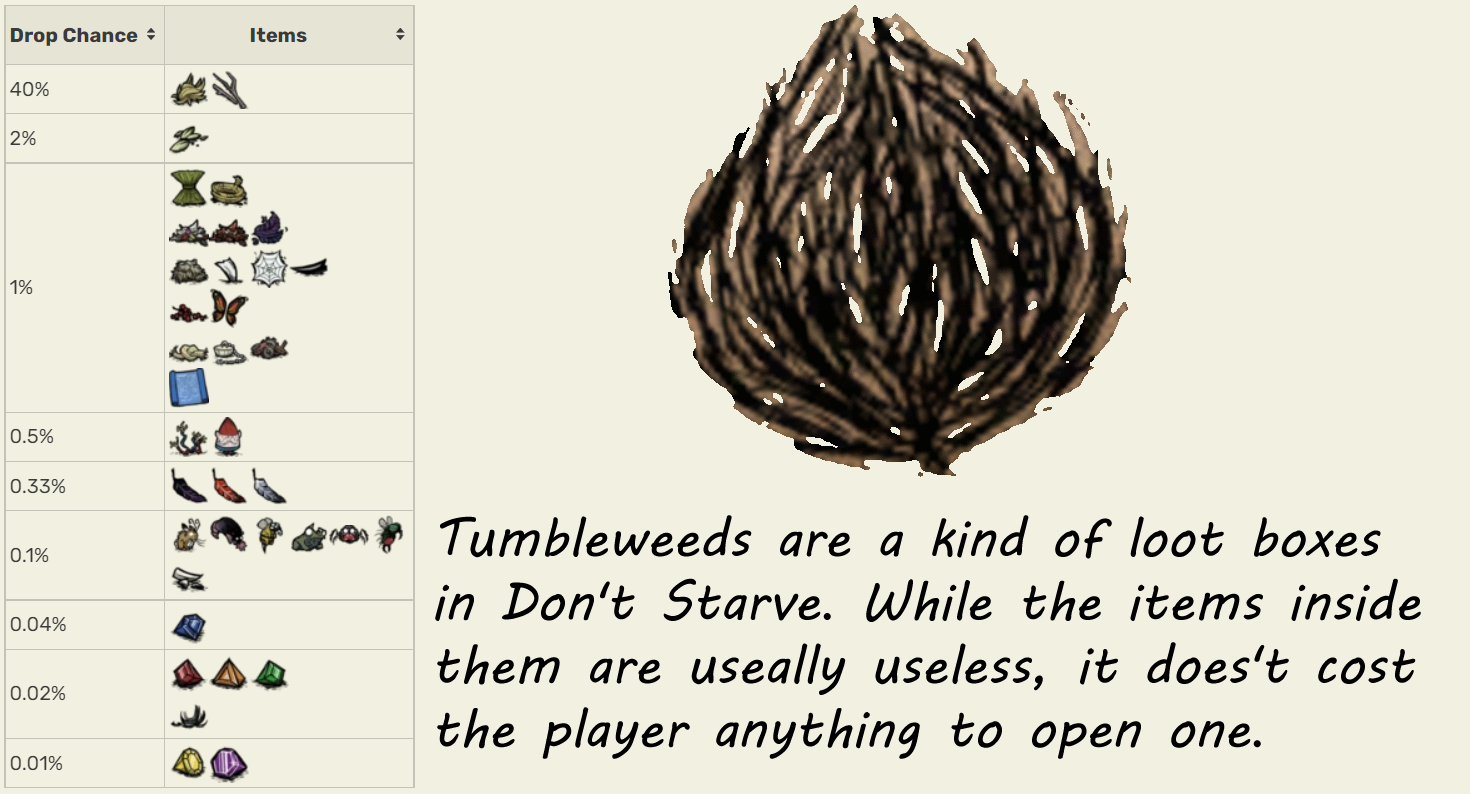Randomness in Games
Randomness is a widely used tool in game design. In games, randomness is seen in procedural map generation, loot boxes, AI behaviors and more. Randomness has mixed reputations in games. To some players, randomness helps creating a diverse game experience by creating countless combinations of contents; to others, randomness is a beast in games that ruthlessly destroys all efforts they have made by messing the game up with unexpected outcomes.
What makes some randomness successful?
To see if there are any criterion to make a successful use of randomness in game design, some game designers divide randomness into two types, input randomness and output randomness. In input randomness, the randomness serves as the input of the player's decision making process; on the other hand, in the output randomness, the randomness is the outcome of the player's acts. With the classification, some argue that input randomness helps delivering good player experiences while output randomness leads to frustrating player experiences. In their understandings, the player is able to put input randomness into their decision making while output randomness decides the next state of the game while disrespectfully ignores the player's acts.
While the statement above seems reasonable and convincing, I suggest this is not the only reason that separates a good use of randomness in games from a bad one. I believe that there is no simple answer to what makes a successful use of randomness. Randomness is to games what spices are to food. Without spices, food is bland. However, with too many spices, food becomes overwhelming. It is the same when it comes to using randomness in game design. The designer has to fine-tune the use of randomness in their games carefully to deliver the best experience to the player.
Players' experiences toward randomness in games
In this passage, I classified the player's feeling toward randomness in games into three types. I will also discuss ways the designer can use to prevent the player to have those bad feelings.
Powerless - being unable to control the game
Payers' feeling of being powerless can be caused by output randomness, which takes over the control of the next state of the game from the player. For example, in XCOM, the outcome of the player's shooting is controlled by luck. However, this kind of game mechanic is not necessarily bad. The designer can adjust the influence of randomness and make the player feel surprised instead of being complete powerless. For example, in Phoenix Point, instead of hitting or completely missing, there will always be some bullets that hit the enemies. Hence, I believe with the right amount of luck influencing the outcome of the player's acts, it will surprise the player instead of frustrating them.
To sum up, I believe the amount of luck used to influence the outcome should be fine-tuned in a way that it makes the player stay excited about the outcome but still knowing they are taking control.
Unsure - having a low information horizon
An information horizon is the amount of information the player has while making a decision. By blocking the player with uncertainties in games, the designer prevent the game from being too straightforward and challenge the player's decision making. However, too low an information horizon can cause the player to feel powerless. It can be seen in games using procedural map generation. For example, in Don't Starve, in which the map and items are generated randomly, there is a rare but still possible chance that the player cannot find enough items for them to make a torch before the deadly night comes. In this situation, the player could feel powerless beaten by the lady of luck. I believe this situation can be prevented if the player is given the positions of the essential items to make a torch in the mini map. On the other hand, using procedural map generation as well, the designers of Age of Empires II design the map-creating algorithm differently. For example, in Arabia, a random map in Age of Empires II, while the terrain and some resources may be generated randomly, the player always knows there will be 8 sheep and 6 bushes nearby at the start. In this way, the player can follow their original plan while still being challenged by the uncertainties in different games.


In conclusion, I believe the information blocked by lady luck should be in an amount that challenges the player's skills while the important information is still open to the player when making decisions. For example, in an old version of League of Legends, there were no way for the players to know what element of dragons would arrive next. Then, the designers realized this information is very important for the players to know before making strategies; therefore, they decided to reveal the element of the next arriving dragon by putting the symbol of the elements on the wall.
Angry - losing a gamble
Another important factor the designer should consider when adjusting randomness in the game is the gap between player's cost and the reward. The reward from the game can not be much less than the player was expecting. For example, in games with loot boxes in it, such as Pixel Dungeon, the player will certainly be frustrated if they only get a useless seed from a chest after defeating an animated statue. However, in Don't Starve, the player wouldn't mind even if a tumbleweed only drops a twig, because it costs them barely nothing to open a tumbleweed.
In conclusion, I believe opening a loot box is like gambling. The player bets the cost of their action to open the loot box, and people don't like losing in gambles. Therefore, the reword in the loot box should never value too little compared with the cost of the player's action.


Conclusion
In this passage, I briefly sums up some common uses of randomness in games and players' feelings toward those game mechanics. However, I believe there is no simple way to determine whether the mechanics are good or bad. I believe the designer should examine the mechanic from the players' perspective, as each case differs.